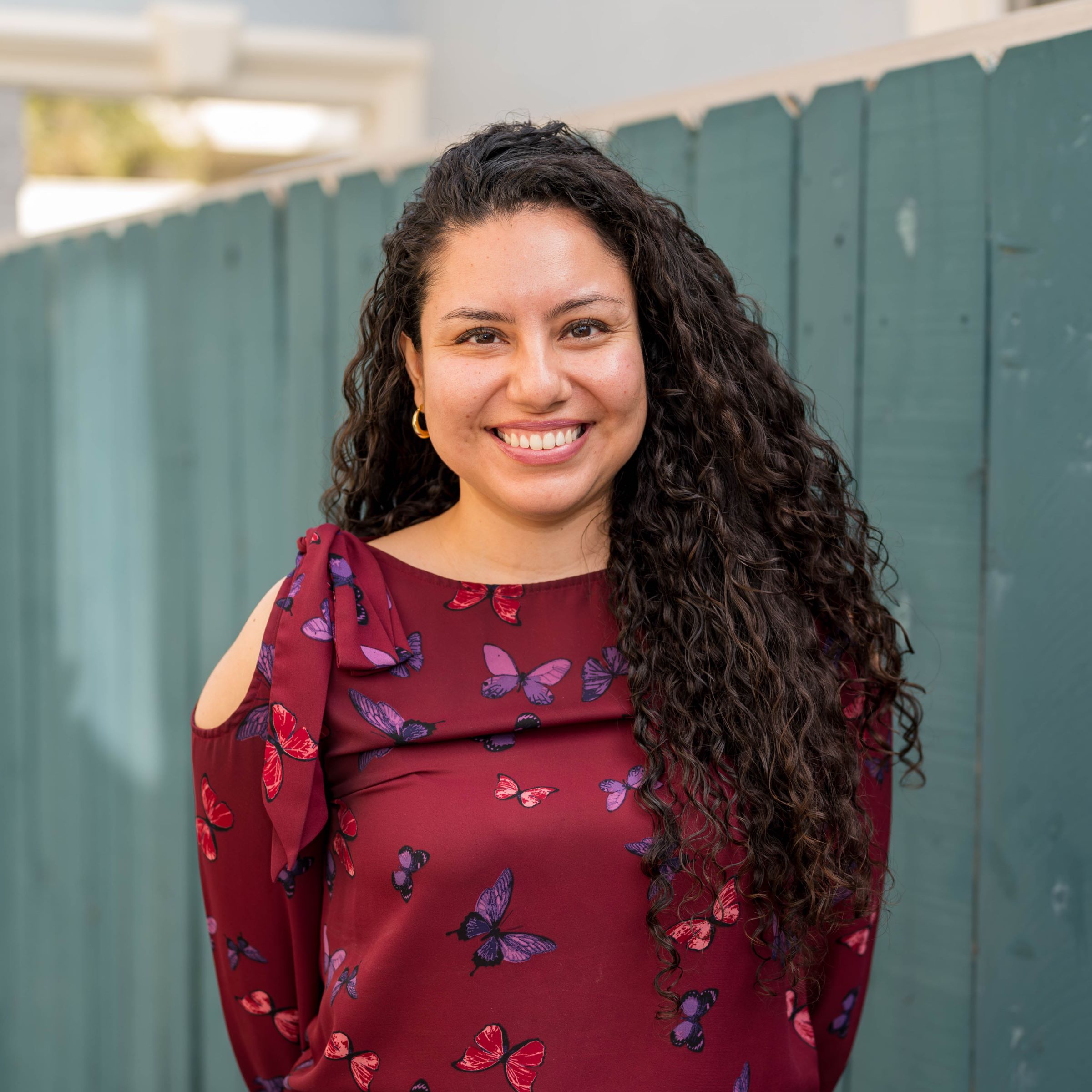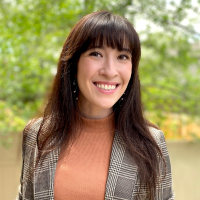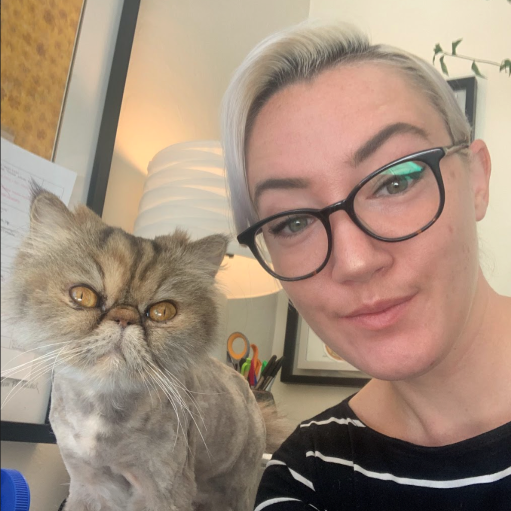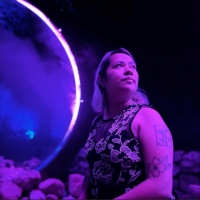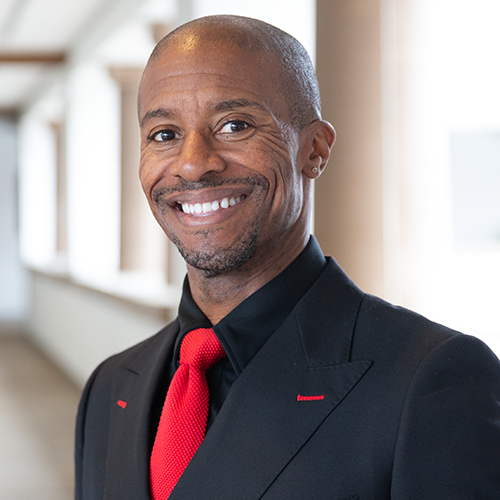About Us
The Women’s Resource Center (WRC) at San Diego State University is a brave and inclusive community that advocates for gender equity and social justice. The WRC team uplifts women and gender expansive individuals in programming and efforts to create a campus culture rooted in intersectional feminism, empowerment, and holistic student support. The WRC strives to challenge the gender binary, trans-exclusion, racism and anti-Blackness by centering the needs of our multiply marginalized community members through a trauma-informed lens.
- Intersectional Feminist Education
- Academic Support
- Leadership Development
- Community and Coalition Building
- Identity Exploration
- Sexual and Gender-Based Violence Prevention
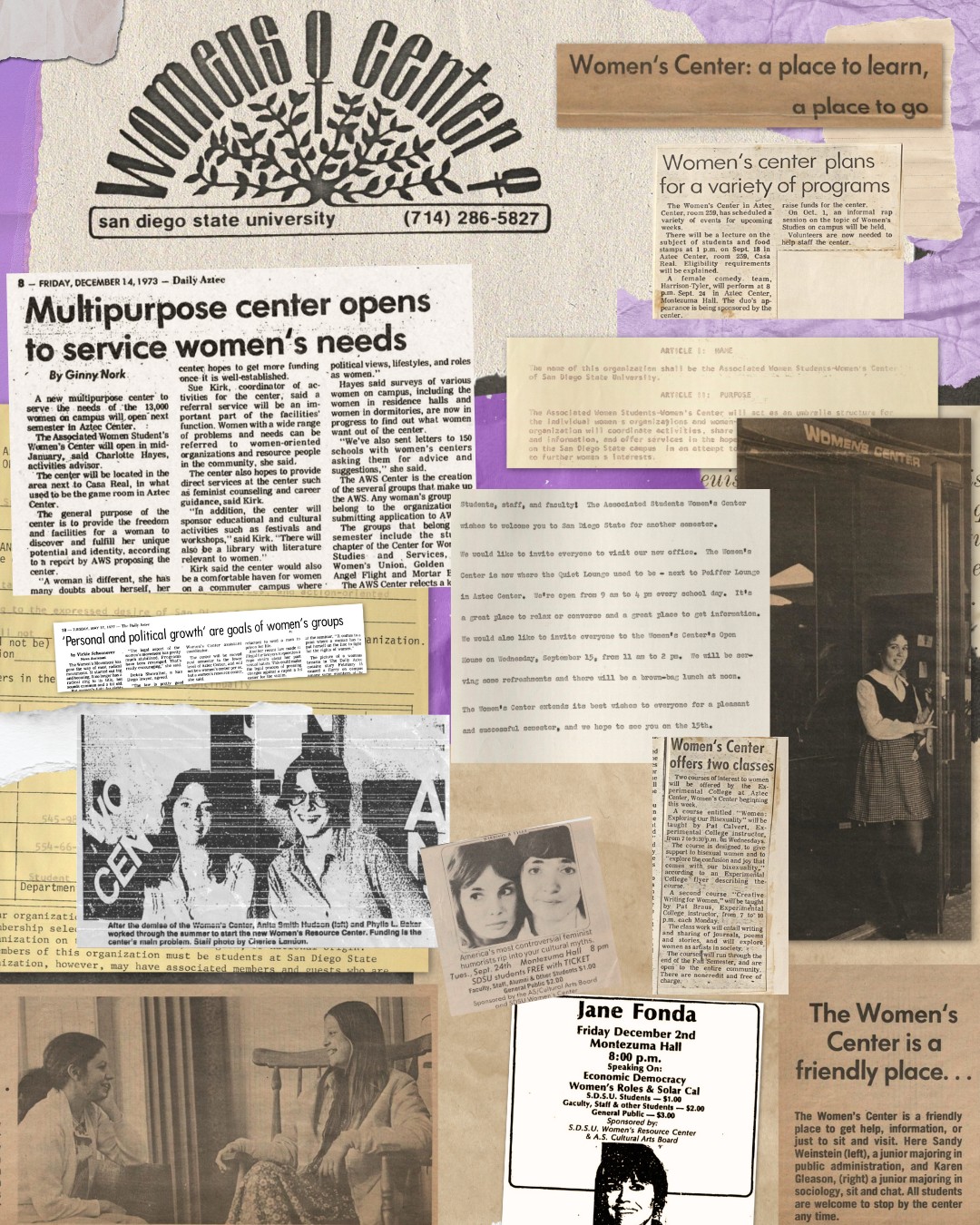
The Associated Students Women’s Center opened in 1974. Run fully by SDSU students, its purpose was “to provide the freedom and facilities for a woman to discover and fulfill her unique potential and identity.” The Center provided referral services, information, and educational events out of its space in the Aztec Center. It served as a hub and umbrella organization for feminist and women’s student groups across campus.
In 1977, the Women’s Center was closed by organizational leaders, including former Director Barby McCully, who felt they were duplicating services. Other involved students, including new co-directors Anita Hudson and Phyllis Baker, saw the need for the Women’s Center and its services to continue and opened the Women’s Resource Center in its stead. The Women’s Resource Center continued to build community across campus and led programs that advocated for gender equity and an end to sexual and domestic violence.
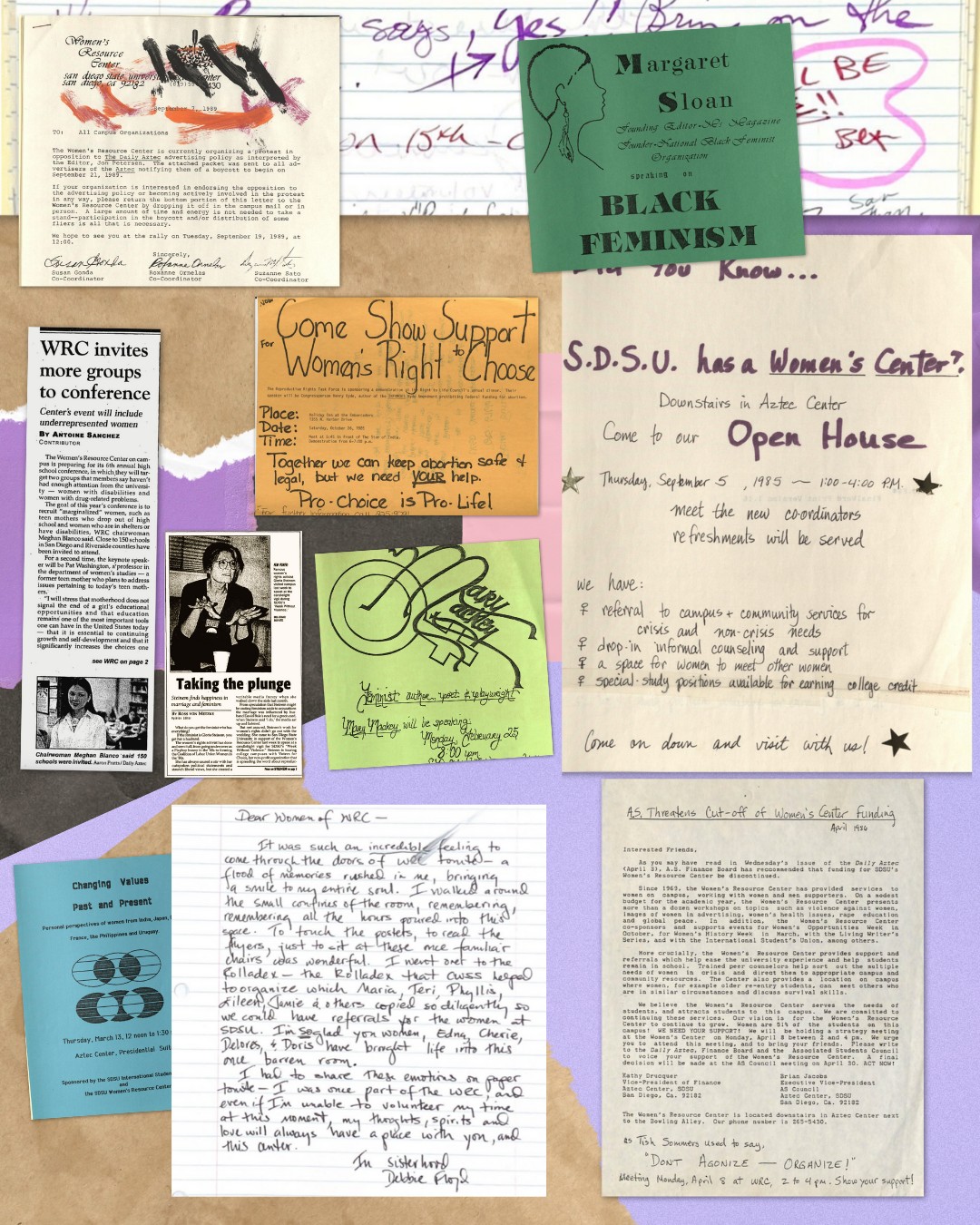
The Women’s Resource Center continued to serve as a hub for feminist activity and advocacy. In addition to its robust programming, the WRC provided drop-in counseling and support for SDSU students. The WRC received funding for several work-study positions so that student organizers could be paid for their work.
In 1986, the WRC lost its space in the Aztec Union and a significant portion of its funding after the Associated Students Finance Board moved to defund both the WRC and the Gay and Lesbian Student Union. Despite that setback, the WRC wouldn’t be stopped. They continued to be a force to reckon with on campus, hosting educational workshops, organizing protests and political action, educating the campus on violence prevention, and offering support and community for students.
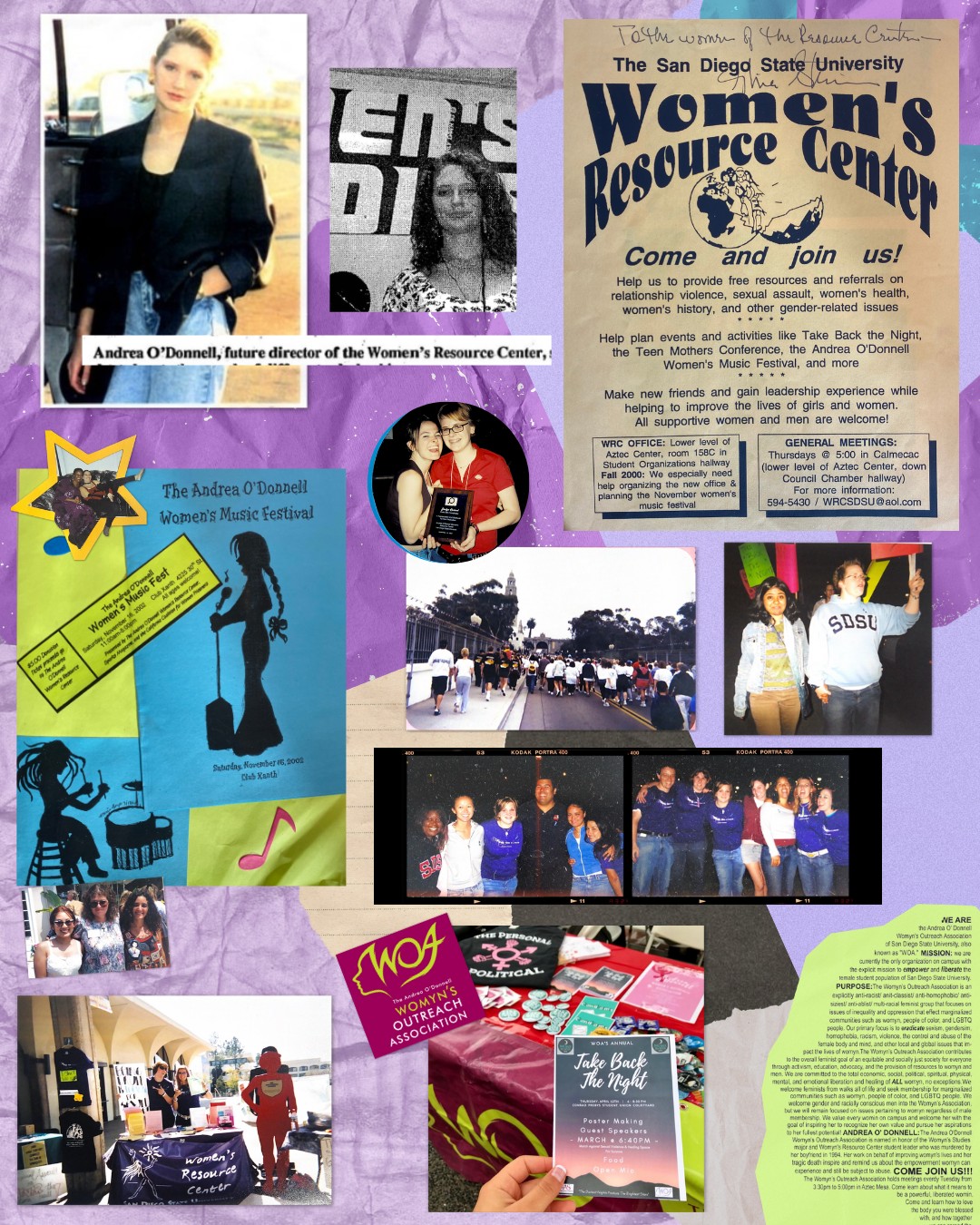
The WRC changed its name to the “Andrea O’Donnell Women’s Resource Center” in honor of WRC student leader Andrea O’Donnell, who was tragically murdered by her boyfriend in 1995.
The organization would change its names several times over the years, from the “Andrea O’Donnell Women’s Resource Center” to the “Andrea O’Donnell Womyn’s Outreach Association (WOA)” to the “Andrea O’Donnell Feminist Outreach Association (FOA).” Through it all, they brought together a community of feminist students, staff, and faculty to advocate for change on campus and in the greater San Diego community.
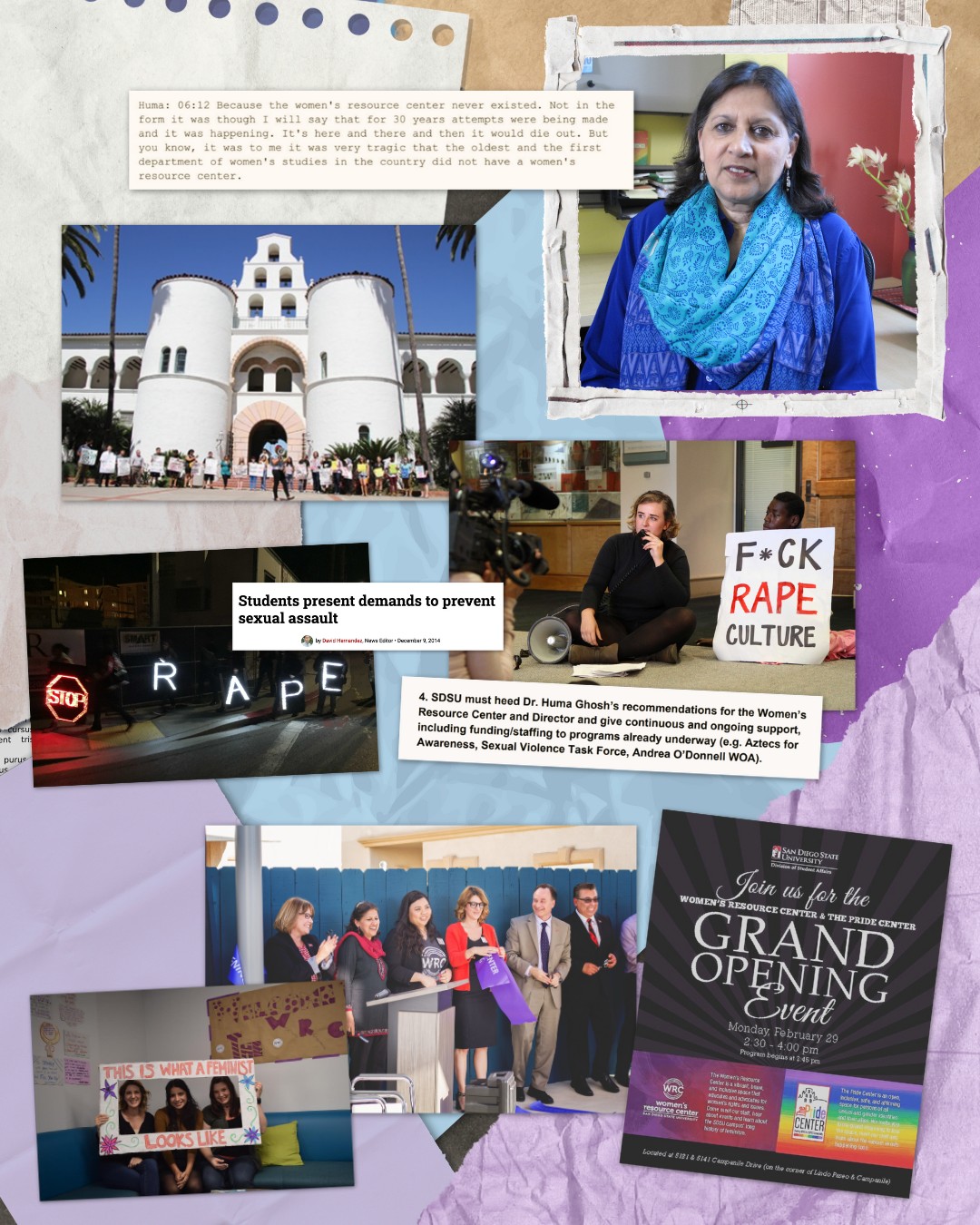
In 2011, Dr. Huma Ahmed-Ghosh, the Chair of the Women’s Studies department, began pushing campus leadership to establish a fully funded, professionally-staffed, permanent Women’s Resource Center. Alongside Dr. Susan Cayleff and Dr. Sue Fonda, fellow faculty who had pushed for a permanent WRC in the past, Dr. Ahmed-Ghosh cited her “stubbornness and position as chair” as key to convincing the President, who was initially “inclined, but not convinced.”
In the Fall of 2014, after a series of highly publicized sexual assault cases on campus,
students formed a group called “Concerned Students of SDSU” and organized to protest
the campus administration’s perceived lack of response to the sexual violence taking
place. On December 9, they marched from Hepner Hall to Manchester Hall and read a
list of demands to university officials. Demands included “a progress report on the
development of the alleged Women’s Center that is to be opened sometime next year.”
The SDSU Women’s Resource Center was officially opened under inaugural Coordinator
Dr. Jessica Nare in the Fall of 2015. In January 2016, the WRC moved into its current
space on Campanile Drive.
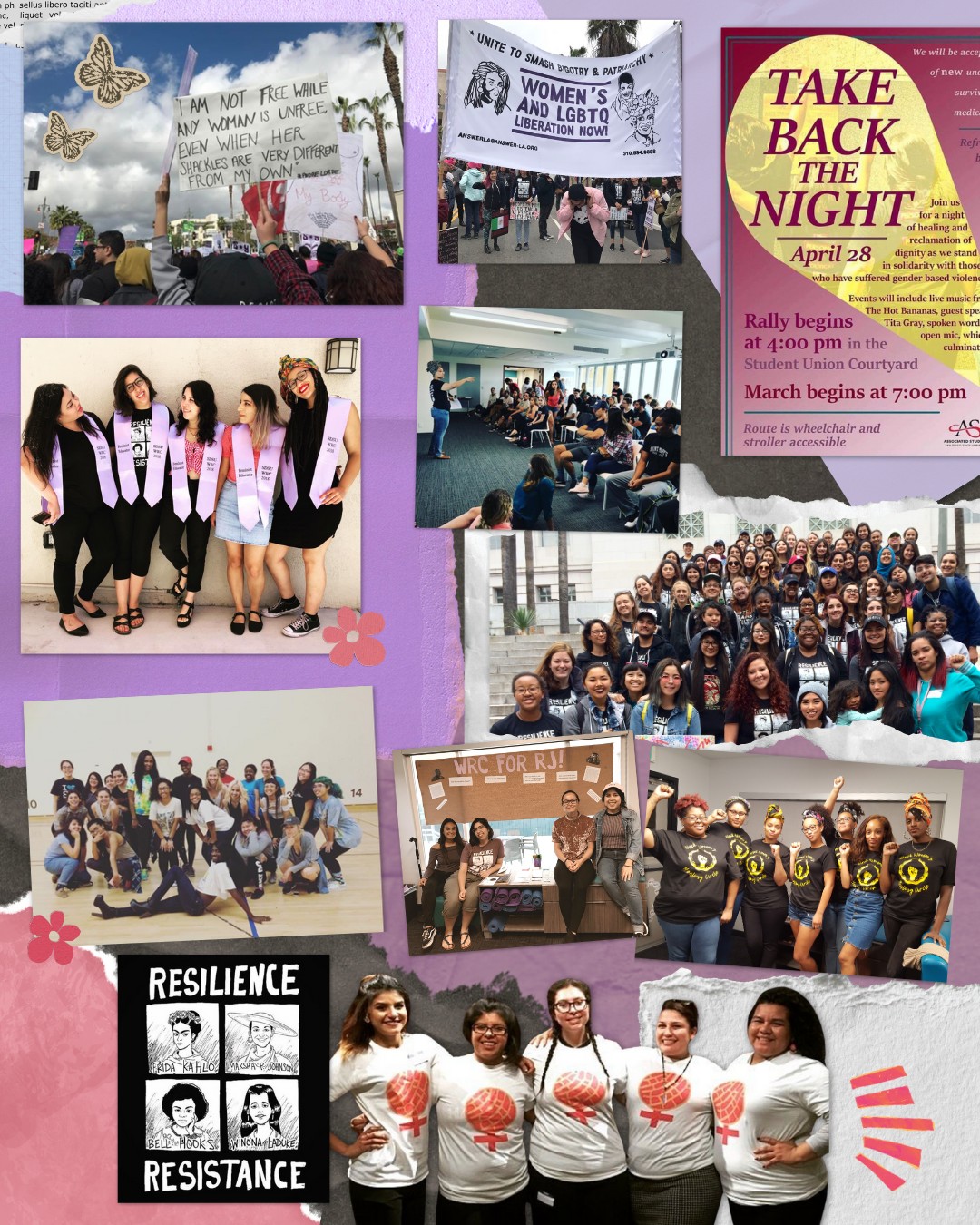
The Women’s Resource Center quickly became a gathering space for the feminist community. Dr. Nare and the WRC’s feminist student educators created a variety of educational programs, including founding the Brave Project, the WRC’s ongoing feminist and trauma-informed sexual violence prevention and survivor support program. Other new initiatives included the Women and Gender Equity Program for first-year students and the WRC Fellows program, a semester-long internship where students organized educational Feminist Passion projects.
As the WRC’s programs and services grew, more full-time staff were brought on to support the growth of the space. Over time, the WRC staff grew to include a Director, Assistant Director, Assistant Coordinator, and a Faculty Scholar who taught courses for both the WRC and the Pride Center.
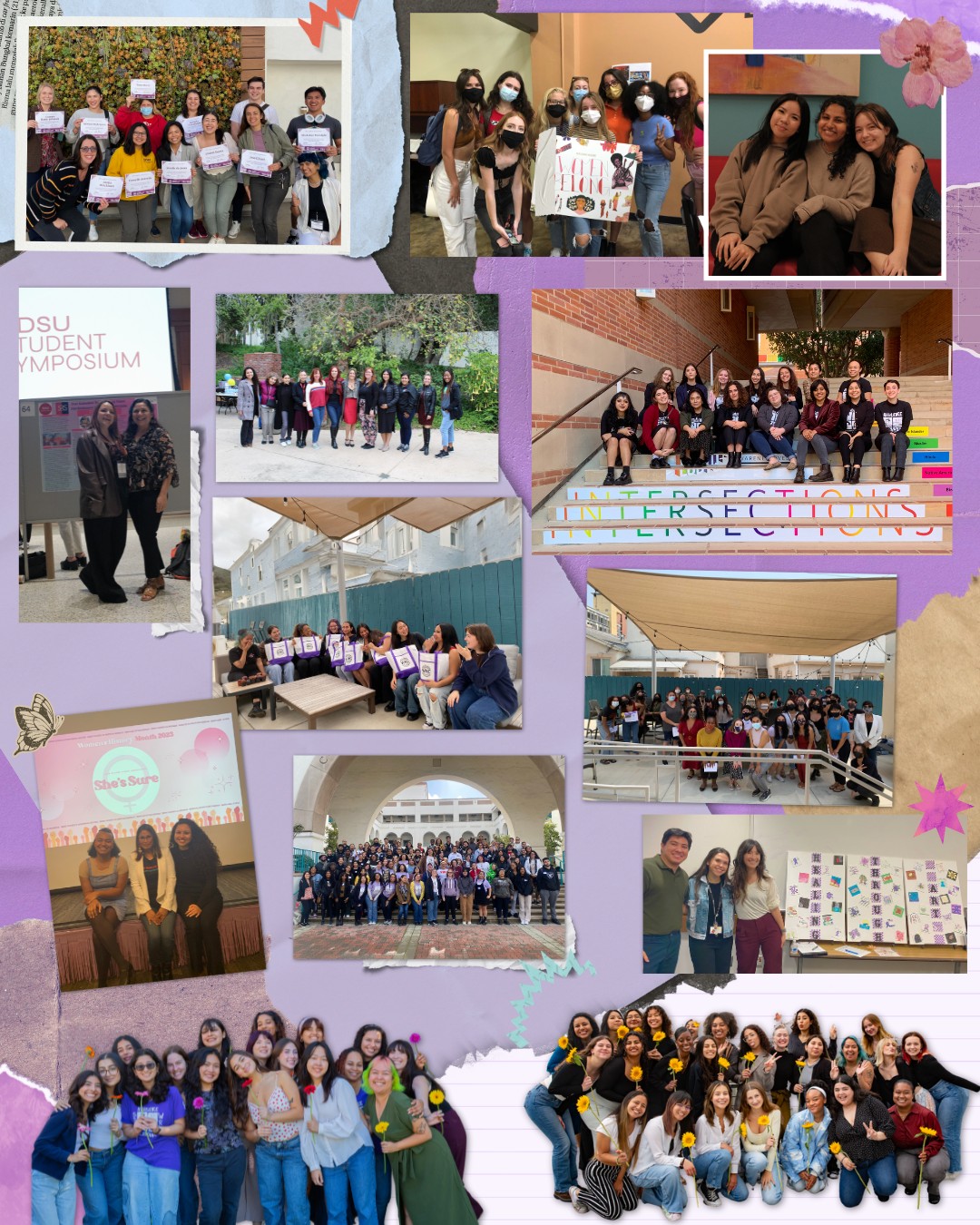
Since then, the WRC has continued to grow and evolve. Our Pregnant and Parenting Students Initiative coordinates programs, resources, and referrals across campus and the San Diego community. The Women and Gender Equity Program now provides feminist peer mentoring for involved first-year students. In collaboration with the Women's, Gender, and Sexuality Studies Department, feminist student organizations, and the other Community Centers that have opened since our founding, the WRC hosts healing circles and vital community-building spaces for students.
On the WRC’s 10th anniversary, we honor the legacy of the feminists who came before us, organized, and fought for gender equity at SDSU. They laid the foundation for all of the WRC’s work today. We can’t wait to see what we can accomplish over the next ten years, working hand-in-hand with all who support gender equity across campus and beyond.
Meet Our Staff
Elzbeth received a BA in Ethnic Studies from UC San Diego, and an MA in Postsecondary Educational Leadership with a Specialization in Student Affairs from SDSU. She began working at the WRC in 2017, and is honored to continue being a part of such an empowering, loving, and resilient space. Outside of her work at the WRC, Elzbeth is also a part of the SDSU Latina Network, and she has the privilege of being their Vice Chair. She is most passionate about intersectionality, mental health, body politics, and feminist mentorship. On a personal note, Elzbeth adores hamsters, inspirational quotes, and iced coffee.
Alex Aikyo received her BS in Advertising from the University of Colorado Boulder and her MA in Higher Education Student Affairs from the University of Connecticut. Her work in university Women's Centers at an undergraduate, graduate, and professional level has fueled a lifelong passion for building feminist, anti-racist, and trauma-informed spaces within higher education. Outside of the WRC, you can find Alex drawing comics, taking naps with her dog, trying out new recipes, or geeking out about queerness in animation and video games.
Amanda Beardsley received her Ph.D. in Art History from Binghamton University in 2019 and is a lecturer in Women’s Studies at San Diego State University. She has taught courses and written on the intersection between science and religion, feminist media theory and history, community activism, art history, and gender and sound studies. She has recently published articles in Technology and Culture and Nineteenth Century Studies that address the gendered implications of architectural acoustics and visual media within American religion. Amanda is a fan of cats, sci-fi, and the beach.
Celeste is a proud, queer, bi-racial, child of immigrants and first gen scholar. Celeste received a Bachelor’s in Business Administration from Cal Poly Pomona and a Master's in Higher Education from University of North Carolina, Greensboro. Their passion to pursue a student affairs career began with their involvement in identity-based student organizations and peer mentorship programs. Celeste is most passionate about intersectionality, mental health, mentorship, and intergenerational healing. In their free time they like to daydream in bookshops where they almost never leaves empty handed, and spend quality time with their loved ones, often over a meal.
Meet our Graduate Assistants
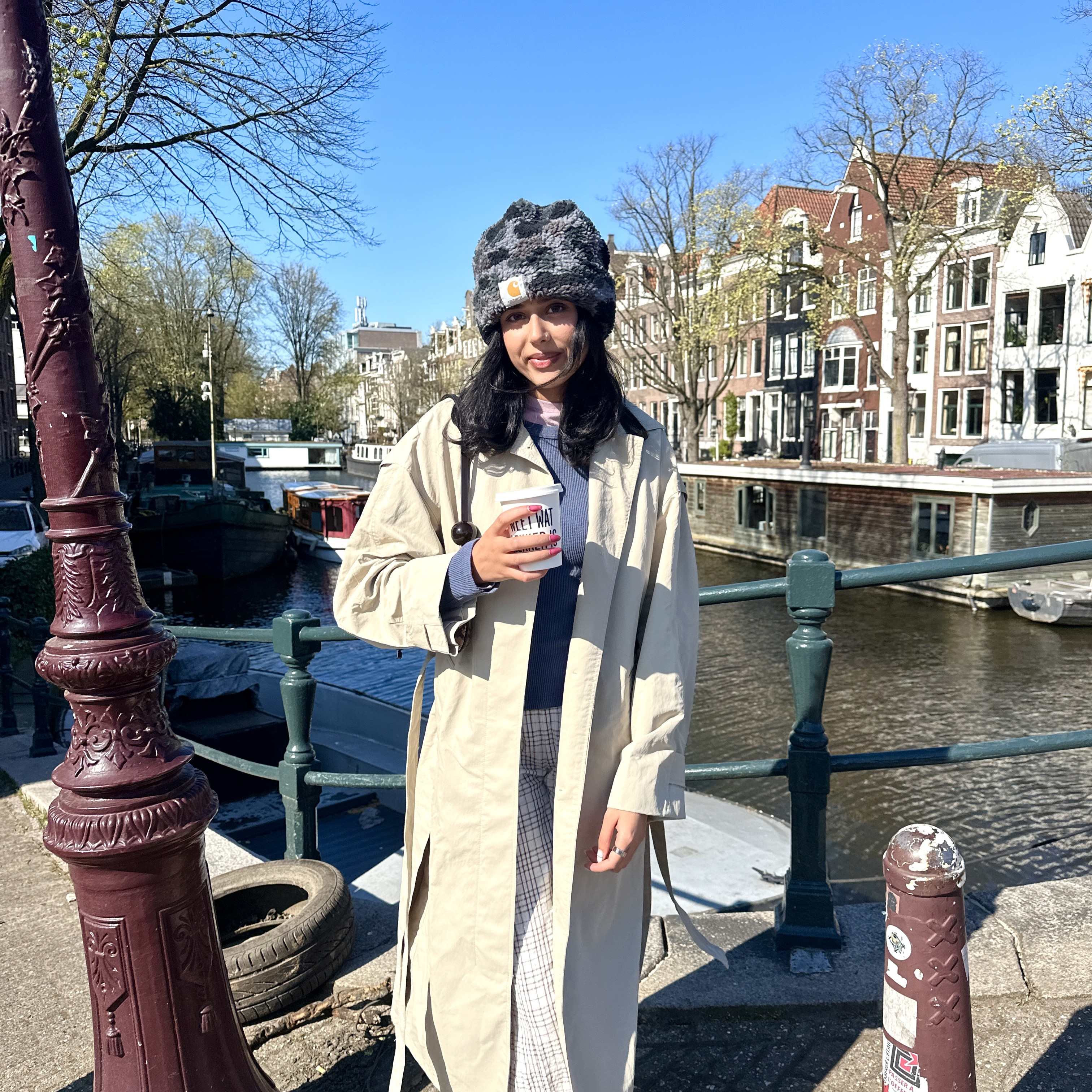
Avi Chahal
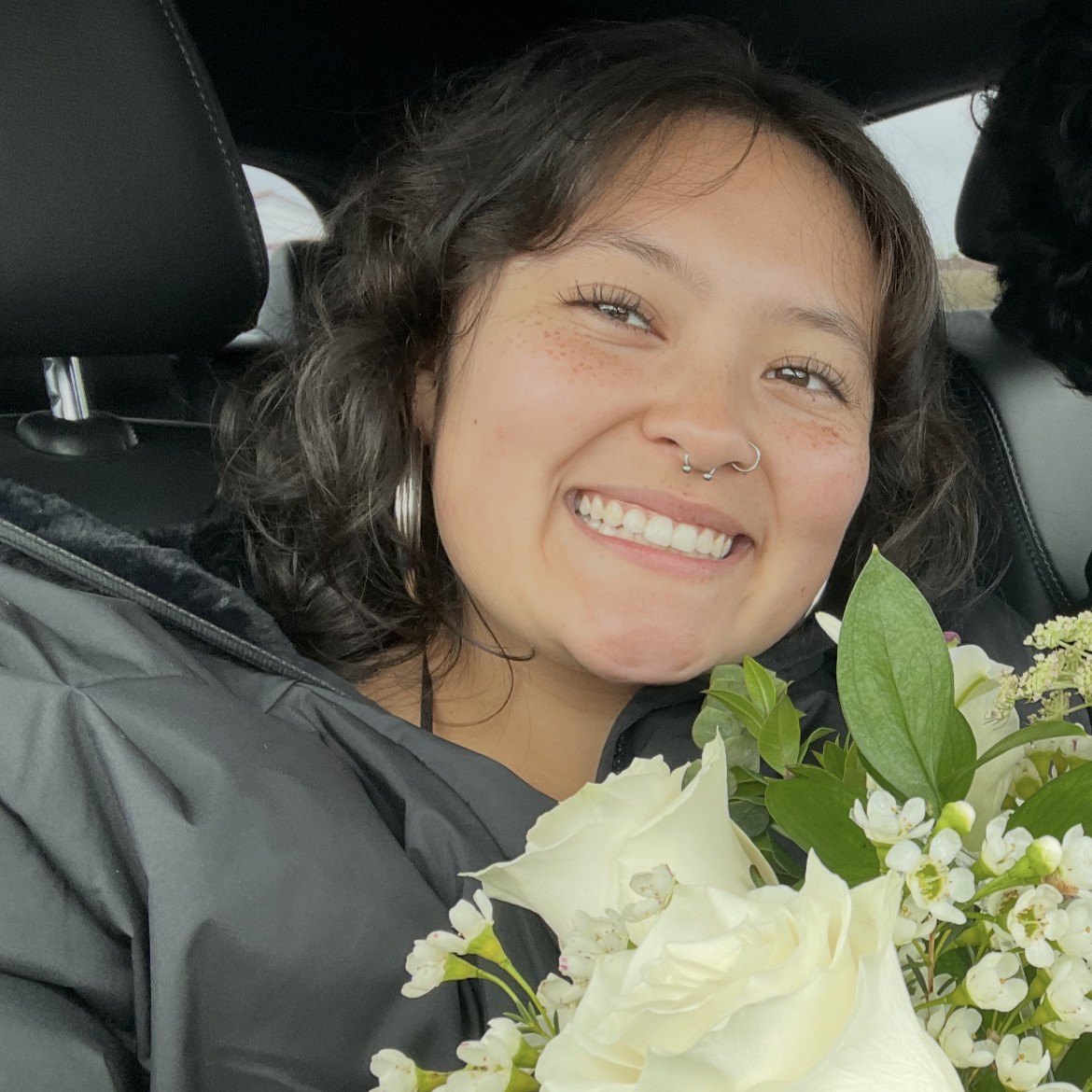
Jenae Dellafosse
Meet our Feminist Peer Educators
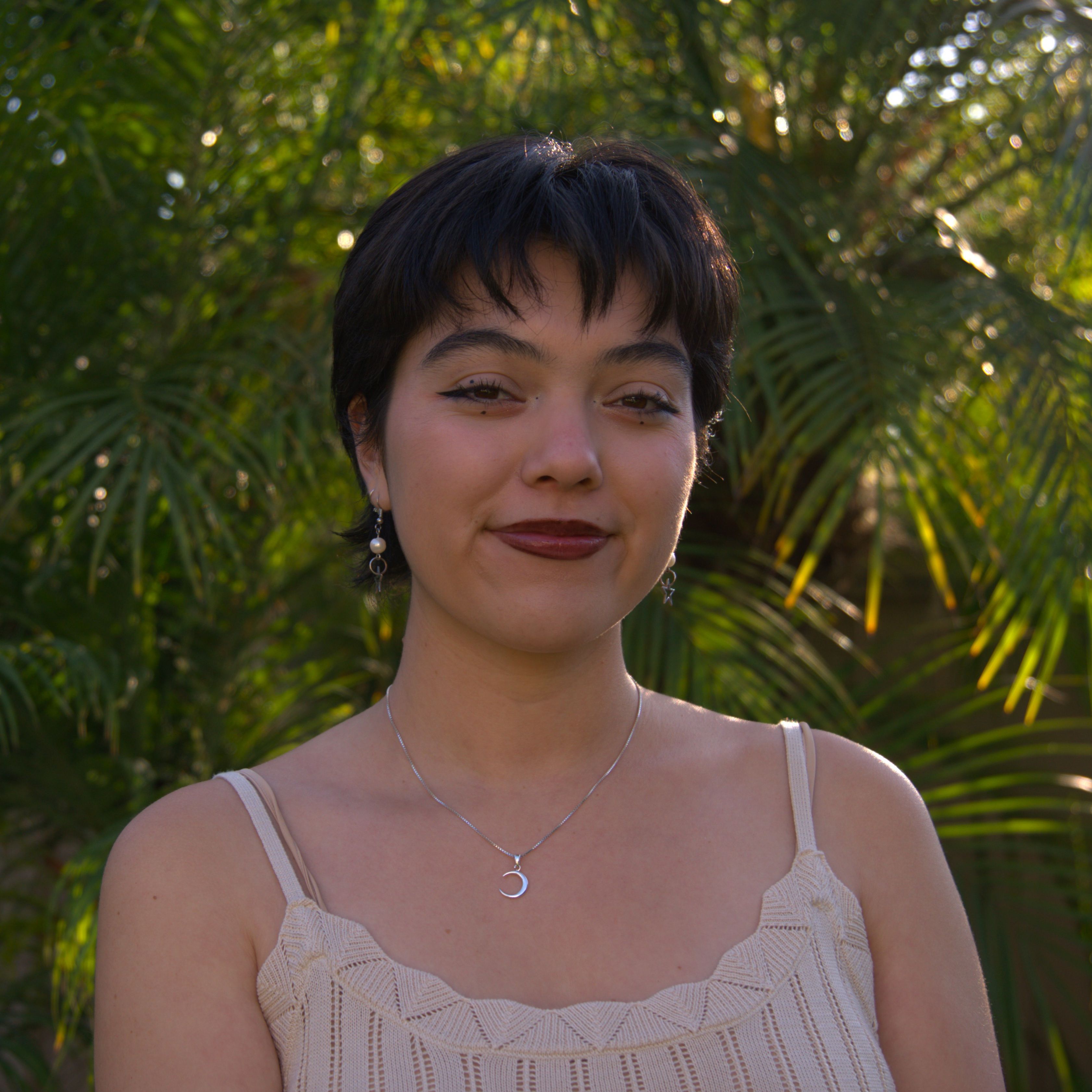
Isabella De La Ossa
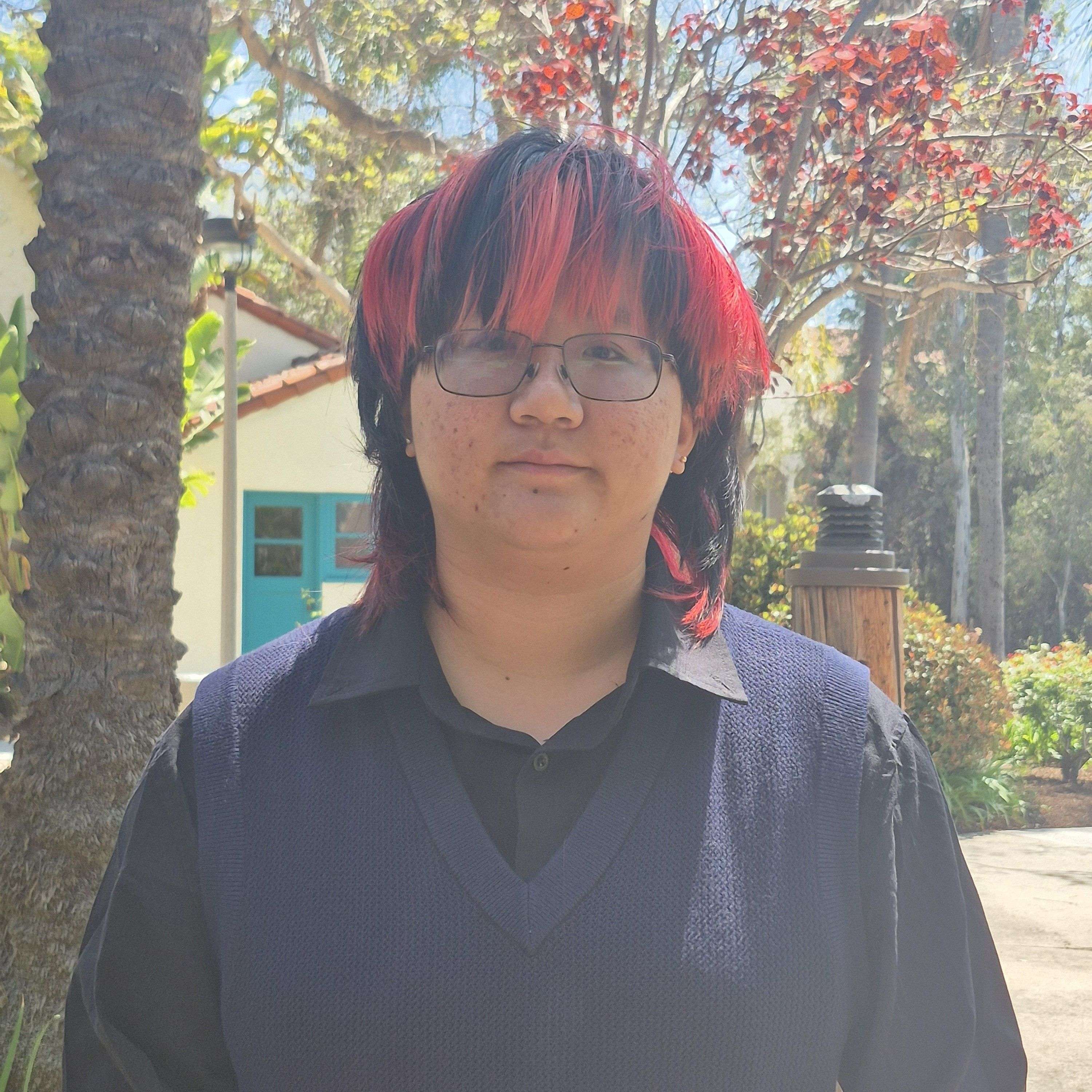
Sol Nie
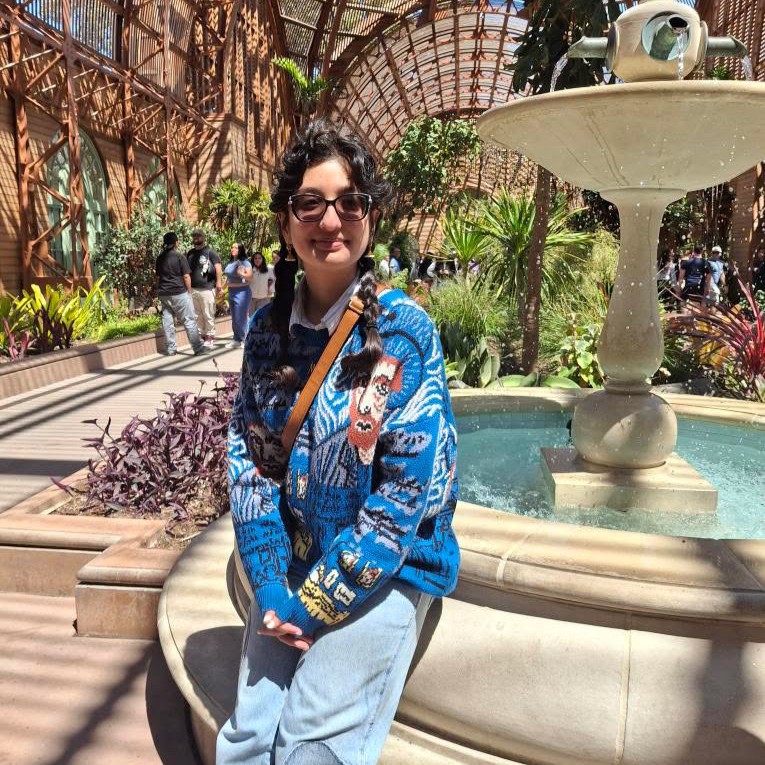
Manasvi Dotiyal
Meet our WAGE Mentors
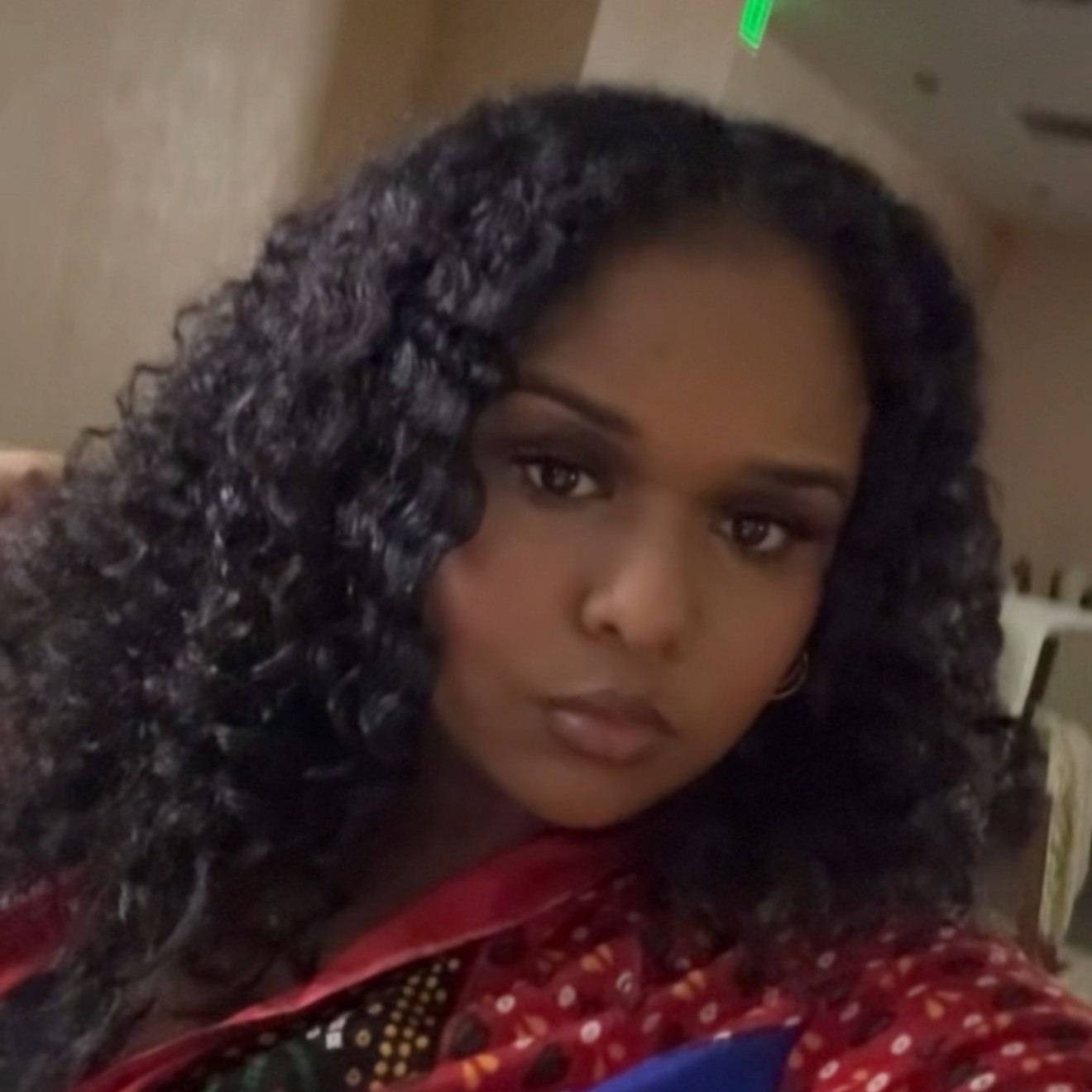
Betty B
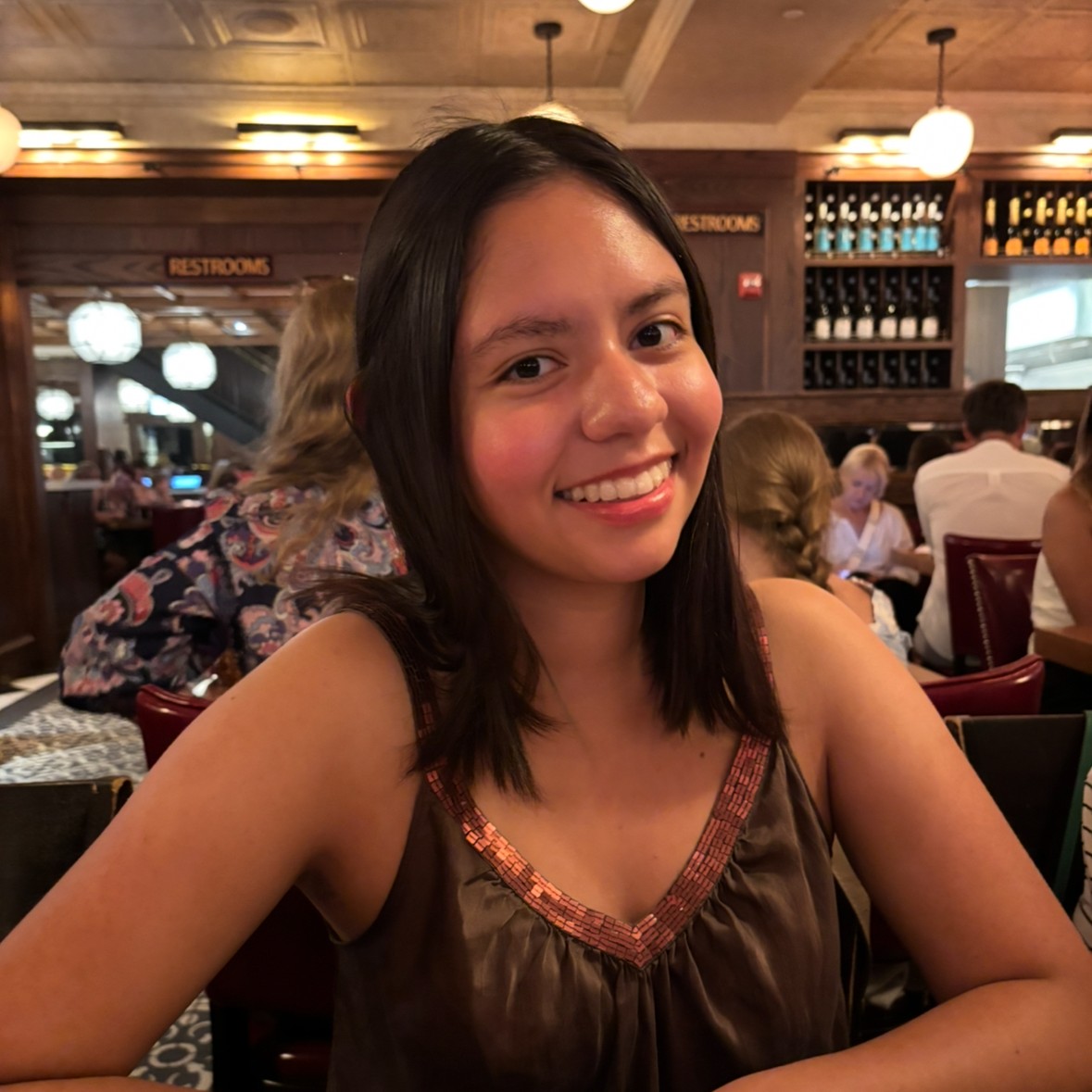
Celina Ramirez
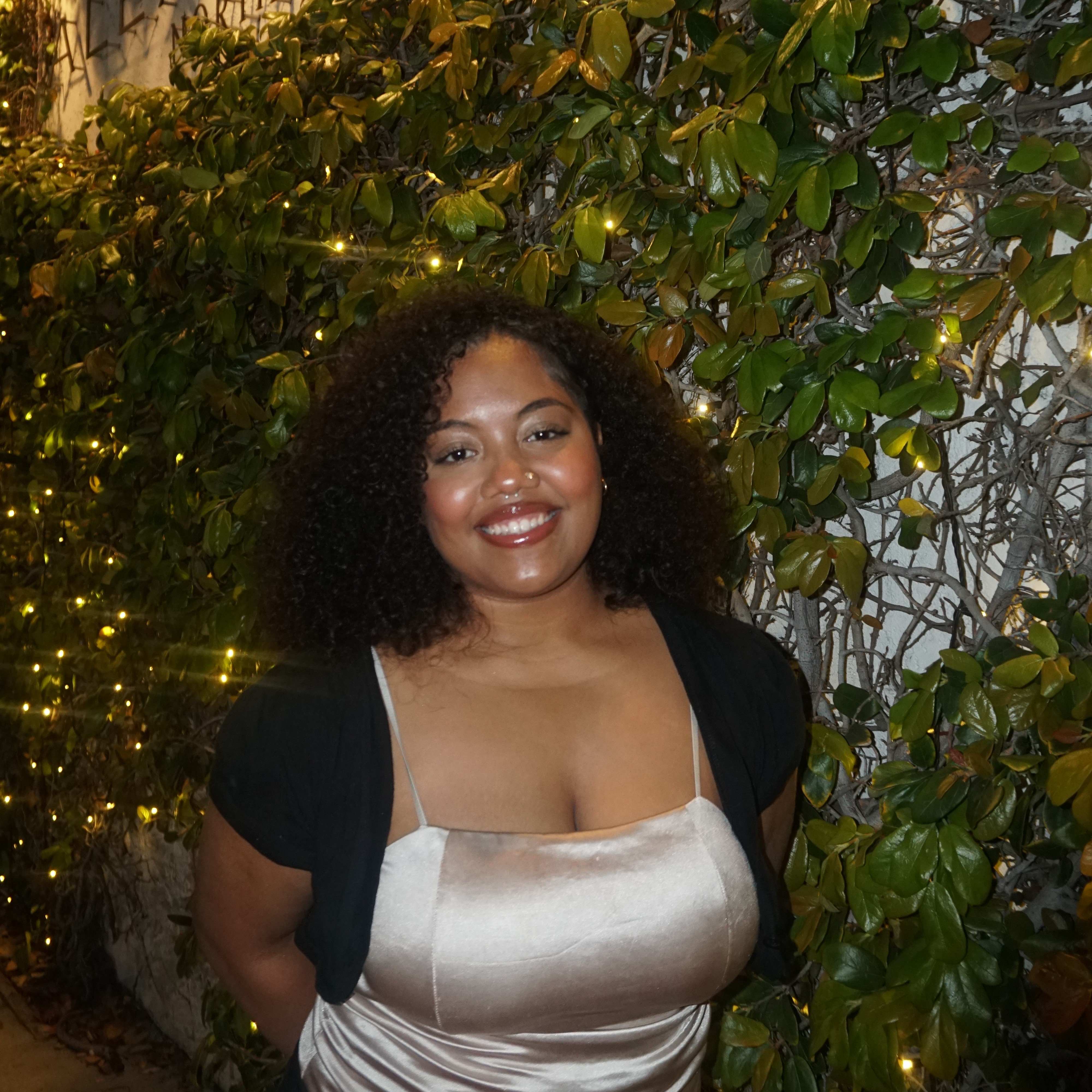
Gizelle Salausa
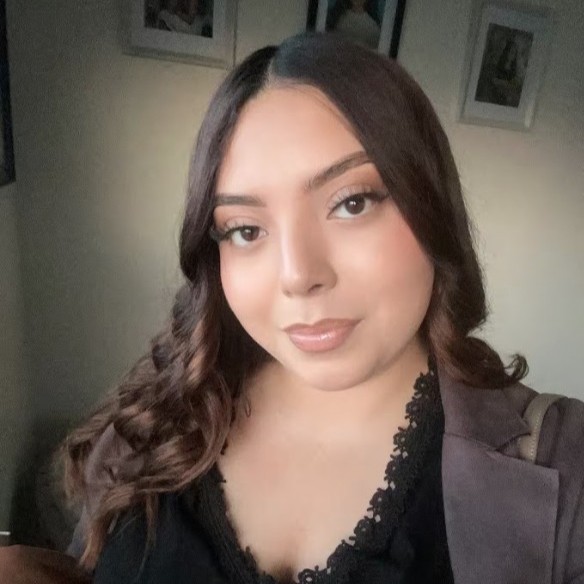
Jocelyn Castillo Rosales
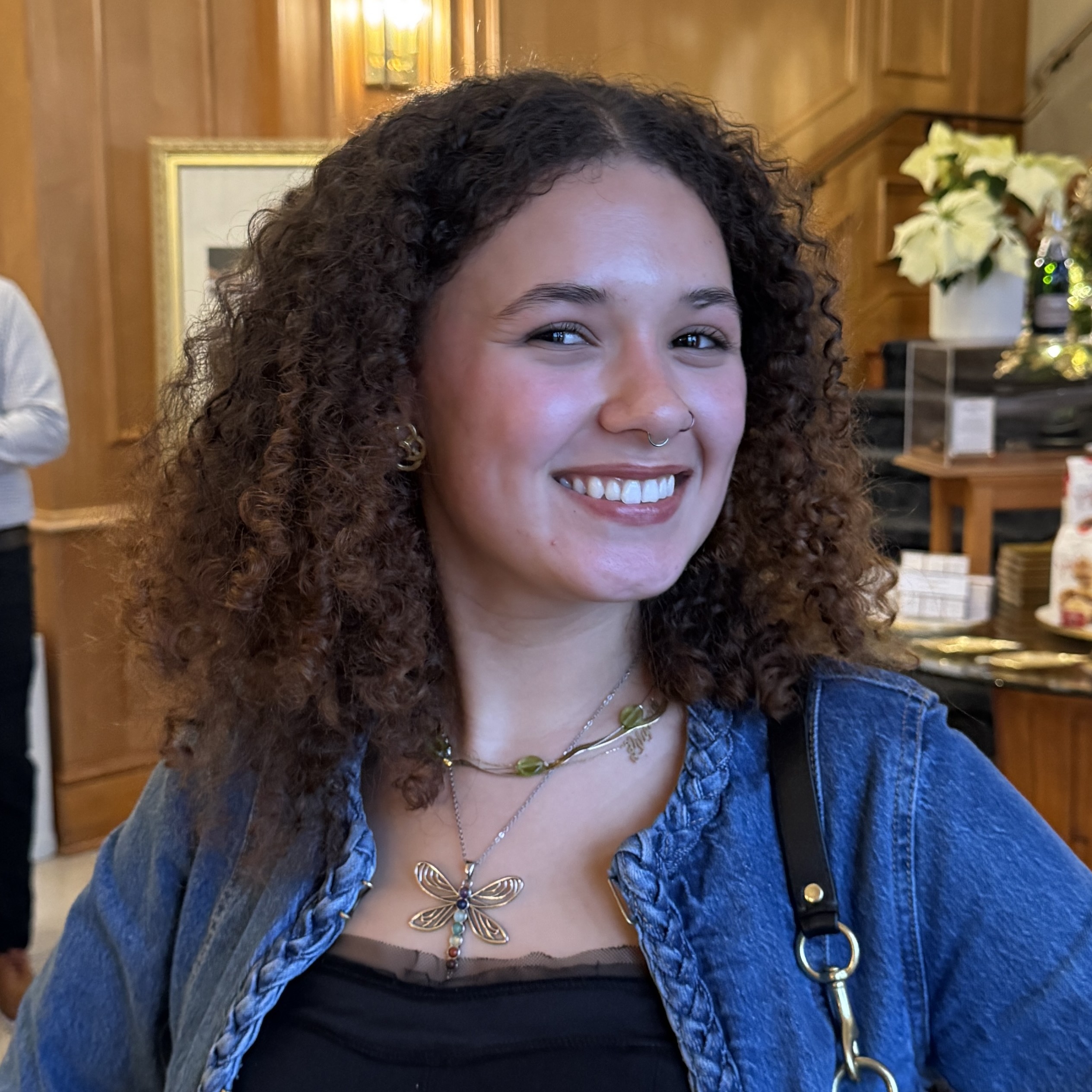
Lily Baja
